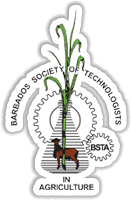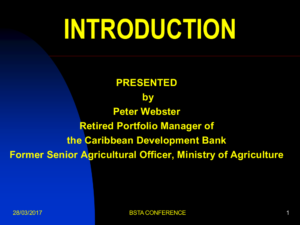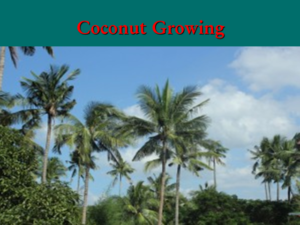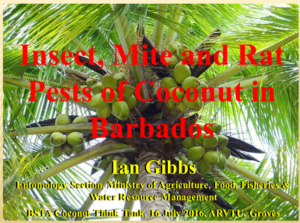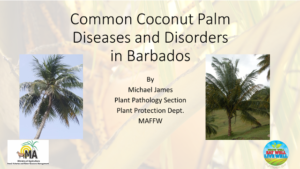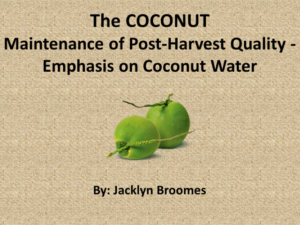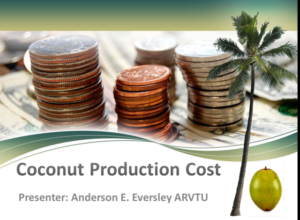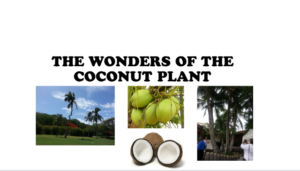“Wisdom is supreme—so get wisdom.” – Proverbs 4:7
Once again, I join my fellow Trustees of the Graham Gooding Trust Fund in commemorating the late E.G.B. Gooding (1915-1987) who was born in Britain of Barbadian parents and was educated at Harrison College and Cambridge University. He was a botanist, agriculturalist, food technologist and environmentalist and I was fortunate to have interacted with him and benefited from his wisdom on many occasions on my return to Barbados in 1974. He researched and published extensively on the ecology and flora of Barbados.
He was an innovative thinker and made many an important contribution in the areas of food production, sugar cane diversification and agri-business. He worked unstintingly for conservation of the island’s natural heritage through the Barbados National Trust and the Government’s Town and Country Planning Advisory Committee.
The Graham Gooding Trust Fund gives an annual Graham Gooding Biology prize at the University of the West Indies in Barbados and initiated the concept of “Eat Bajan Day” as an activity that builds on his legacy. This year Eat Bajan Day will be observed on Friday, October 9.
People are our most important resource and have to be fed. Eat Bajan Day sensitizes us about the importance of local agriculture and fisheries to our health and wealth and to the planet’s future. The Trustees are encouraging all to try to use only local food and beverage for meals on Eat Bajan Day. But why stop there? We should continue throughout the year.
Locally grown agricultural produce is more easily quality controlled and gets from farm to table in a much shorter time than imported produce. Many locally grown products reach the consumer at a cheaper price than imported products and selected products provide our full complement of nutrients.
Agriculture is a science which guides farmers as they cultivate the soil for the growing of crops and the rearing of animals to provide food, both fresh and processed, and other products for local, tourist and global consumption. In the process, the massive agricultural import bill can be reduced and a contribution made to net foreign exchange earnings.
As the local agricultural industry expands, we can benefit from economies of scale. There is the potential to increase quality and productivity and decrease unit price leading to greater competiveness. Incidentally, I pose the hypothesis that praedial larceny will disappear with registration of vendors and farmers, the policing of the trade and reduction of unit price due to the expanded industry making it no longer a viable proposition for larcenists.
What are the results of our attempts at a comprehensive coordinated programme for agricultural development in Barbados? No change, primarily because of the high risks involved.
These risks are associated with the following:
(1) Corporate Governance – little or no focus on leadership and management to structure the foundation of the business; failure to observe legal and environmental laws reflecting society’s priorities or industry mandates; and a deleterious impact on the natural resource base.
(2) Finance – little or no focus on credit rating; and low equity input by the entrepreneur in the business.
(3) Marketing – little or no focus on cusumer satisfaction; no proactive aggressive market-led sales and distribution strategy; unrealistic sales projections especially for start-ups, re-births, spin-offs and scale-ups; and unpredictable prices and markets.
(4) Operations risk – little or no focus on profitability; use of low technology; variations in output due to weather, pests, disease and value chain logistics/timing; praedial larceny; lack of crop insurance; outdated ICT and administrative systems; and weak net cash flows.
(5) People – little or no focus on productivity; poor time management practice; the lack of passion, perseverance and patience in the entrepreneur; and selection, training and motivation issues centered around family members and employees.
In order to state and pursue a policy of sustainable economic growth, the first order of business is to get the governance right. There has to be a clear understanding of the difference between leadership and management. Leadership is about doing the right things and management is about doing things right. Leadership is about vision and management is about action.
According to Forbes Magazine (March 23, 2014): “Today’s market environment places a premium on speed, flexibility and the ability to lead in uncertain situations. At the same time, the flattening of organizations has created an explosion in demand for leadership skills at every level.”
In developing an economy, wise leaders in government and the private sector have important roles to play. The relative roles of the government and the private sector have to be clearly delineated.
The role of the government should be to lead change by stating the policy for agricultural growth and supporting such policy by providing a dynamic enabling environment within which the role of the private sector should be to manage strategy and drive business growth.
On the subject of Eat Bajan Day, I would like to take this opportunity to remember my own mother, Rita Springer SCM, who passed away in January 2013 at the age of 98. She too was an advocate for eating local and indeed was the author of “Caribbean Cookbook”, first published in 1968. Her cookbook was re-launched in 2008, enhanced with photographs of the dishes under the name “Caribbean Cookbook – A Lifetime of Recipes”.
You are invited to support the Trust’s fundraising fruit tree sale hosted by Carter’s General Store at Wildey on Friday, October 9 and Saturday, October 10.
May our agricultural leaders open their hearts to receive divine wisdom and act on it so that the people of this nation and our region can receive many more blessings all the days of our lives.
(Dr. Basil Springer GCM is Change-Engine Consultant, Caribbean Business Enterprise Trust Inc. – CBET. His columns may be found at www.cbetmodel.org and www.nothingbeatsbusiness.com.)
